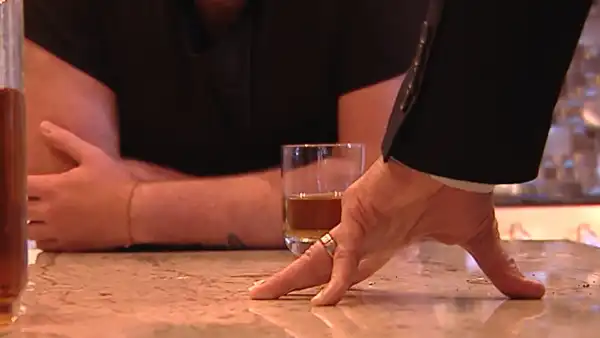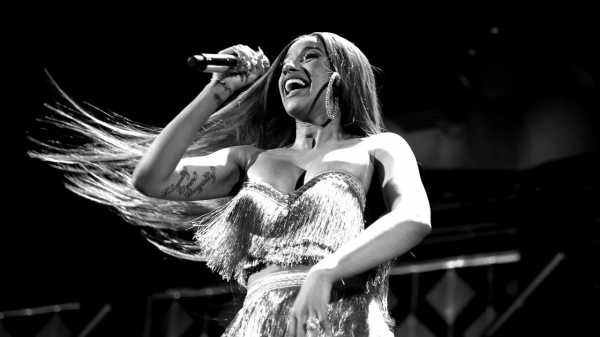
Just a few weeks after its release, “Twerk,” by City Girls and featuring the superstar rapper Cardi B, entered Billboard’s Hot 100 in the ninety-second slot. The occasion marked a milestone for City Girls, a Florida-based duo made up of the rappers JT and Yung Miami. The pair released their second album of 2018, “Girl Code,” even though JT is currently sitting in a federal prison in Tallahassee. The ascent of the City Girls is one of the most unlikely success stories of the past months. Last August, they released their very first song, a scathing middle finger aimed at men who don’t bring anything of value to a relationship. By December, they had signed a deal with the formidable label Quality Control Music (home to Migos, Lil Yachty, and, Lil Baby); in May, they released their début album, “Period,” and in June they landed a cameo on Drake’s chart-topping hit “In My Feelings.” Later that month, JT turned herself in for fraudulent credit-card charges.
This snag could have derailed their momentum, but, instead, “Twerk” has become their most successful song; with it, they join Nicki Minaj, Cardi B, and, somewhat curiously, Iggy Azalea, as the only women in rap to place their own tracks in the Hot 100 this year. Often, the women who charted were either crossover stars, or white, or both. So it’s nice, if not rare, to see a nascent act like City Girls join their ranks. Hip hop’s youngest generation of women has spent the past few years making captivating, genre-redefining music and not receiving enough attention for it. Just count them: BbyMutha, Leikeli47, CupcakKe, Bali Baby, and Kodie Shane all released projects recently. If you open it up to include loose songs, artists like Cardi B, Dej Loaf, Rapsody, Megan Thee Stallion, and Little Simz join the mix. These women, who hail from cities as disparate as Chattanooga, Chicago, Houston, New York, and London, are part of a movement of rappers that is changing an industry and a genre that has kept women at bay, never allowing for more than one female superstar at a time while treating the other women as incidental, pitting them against one another, or ignoring them entirely.
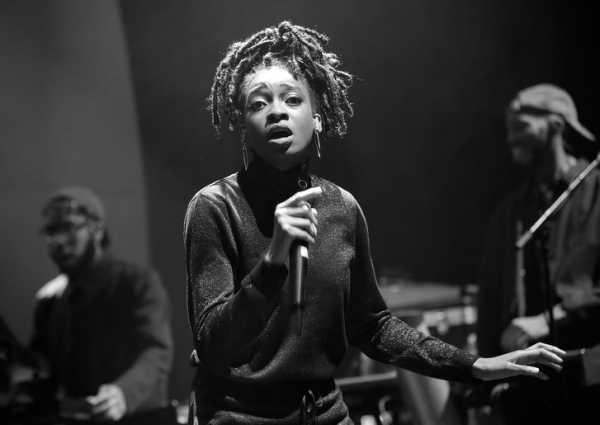
Little Simz.
Photograph by John Phillips / Global Citizen / Getty Images
Hip-hop is a mirror, reflecting and often magnifying larger cultural failings. While #MeToo and #TimesUp call for opportunity and accountability, rap doesn’t seem to be fully listening. Support for black women, in particular, remains a perpetual blindspot, and one that especially stings in this moment, as known abusers continue to be rewarded with praise and platforms. As the scholar Erik Nielson rightly inquired, in 2014, “When do we concede that mainstream hip-hop has become largely defined by the negation of female voice and perspective?” The genre, celebrated for its ability to document and honor the myriad ways that marginalized and oppressed people negotiate their existence, has tragically failed to provide that same space and enthusiasm for black women.
In 2018, rap’s women are no longer waiting to be recognized. And, for the first time since the turn of the millenium—when Lil’ Kim, Da Brat, Eve, Trina and Rah Digga were all among the top hundred on Billboard’s year-end Top R&B/Hip-Hop Albums chart (the most female rappers to appear on that chart ever)—women are being embraced as they step forward. The love is loud on social media, in the press, and on show and festival bills, though it remains to be seen if or how it translates (only Cardi B and Nicki Minaj made this year’s chart). Still, on the ground, this era may very well be remembered as a revival for women in rap: a moment when they reclaimed their rightful place on hip-hop’s stage as the genre was at its most popular and, arguably, its most powerful. In a prescient response to Nielson, the critic Hillary Crosley Coker envisioned a landscape where women create an Internet-based movement that doesn’t rely on labels or mainstream infrastructure. Now female m.c.s are, as she predicted, beating “popular culture into submission with their talents until they can no longer be pushed aside.”
Thanks to platforms such as YouTube, Twitter, SoundCloud, and Instagram, along with the pseudo-democracy of streaming services, women can tap into their audiences directly and find measurable success. Cardi B can spin social media and reality-television stardom into a full-fledged rap career; her historic climb now includes becoming the first female rapper to be nominated for the Record of the Year Grammy. Noname, whose laid-back lyricism is informed by her poetry background, continues to earn acclaim, having released her second project, the stunning “Room 25,” in September—no record deal required. Tierra Whack can craft the aptly titled “Whack World,” an ingenious and exacting visual album that, with a runtime of only fifteen minutes, stunned the Internet. (She, too, secured a Grammy nod for her “MUMBO JUMBO” video.) Someone like Leikeli47, whose album “Acrylic,” released in November, stands as an affirmation of the life styles and sacred spaces that black women carve out for themselves, is free to wear assorted ski masks when she performs—a flourish that is both statement and rebellion, power and liberation, when a woman’s appearance is often considered before her music.
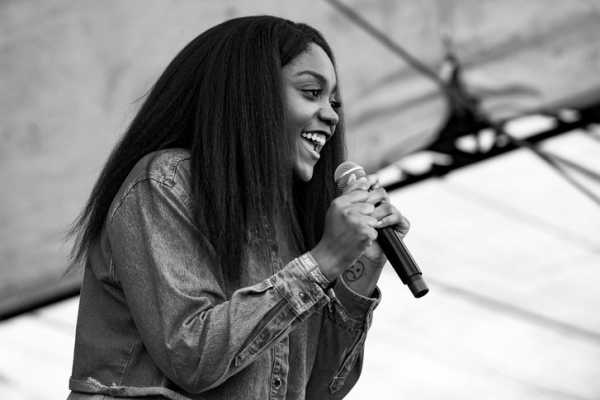
Noname.
Photograph by Suzanne Cordeiro / AFP / Getty
Gone are the days of constricting personas—the hypersexual siren or the straight-edge lyricist—to adhere to narrow views of what could make a black woman marketable. At present, we are gifted with artists who exude conviction in the face of adversity. We deserve to see black women who love themselves without needing anyone’s permission to do so. Rappers such as the rhyme-spitting, flute-toting, booty-twerking Lizzo, or the clever, X-rated CupcakKe, reject body-shaming and slut-shaming—attitudes that society and, by extension, hip hop tend to revel in—by making songs that unabashedly embrace these supposedly shameful qualities. Their defiance is an opportunity for those who are often persecuted to finally feel welcome. “I can’t wake up one day and not be black. I can’t wake up one day and not be a woman. I can’t wake up one day and not be fat,” Lizzo told Teen Vogue in a June cover story. “I always had those three things against me in this world, and because I fight for myself, I have to fight for everyone else.”
Elsewhere, queer rappers, like Young M.A. or the rising Lor Choc, challenge regressive ideas about sexuality and gender presentation. Young M.A., who understandably bristles at identity-based milestones, has made relationships a recurring theme in her music (alongside some charismatic swaggering), and her rendering of sex between women provides an alternative to male-imagined lesbian fantasies. Elsewhere, there’s Rico Nasty, whose audacious album “Nasty” falls somewhere between splashy red-bottoms stuntin’ and an aggressive Nike-boot stomp-out, and the ever-elastic Junglepussy, whose catalogue (including this year’s “JP3”) is made up of the kind of music that makes you want to both have sex and sage your apartment. Both, like many of their peers, boldly reject the suggestion that black women and their expression are only worthwhile when they’re in pain. Collectively, their music allows listeners to hear hip-hop that has the freedom to be masculine or feminine, shy or bold, rebellious or traditional, interchangeably or all at once.
Consider the Chattanooga rapper BbyMutha, whose Twitter time line reads like a black-feminist manifesto, and who actively challenges her listeners to think about what it means to be a single, black mother. Her very name is a reclamation of a title that often comes with it own set of negative and racialized connotations, and she has openly declared babymothers to be the target audience of her “lyrical chopper.” Her lyrics, which she delivers with slick flows that ooze with tenacity, find new dimensions in everything from parenthood and ambitions to orgasms and knowing her worth, lest someone try to cheapen her. (“Niggas know that I’m a star, they want to use me for their profit / minimize my confidence and maximize their wallet,” goes one line on a song called “D.I.Y.”) But the underlying message of her snappy “Bbyshoe,” “Free Britnee,” and “Muthaz Day 3” EPs (all released this year) is shared among most if not all of her contemporaries: offer exactly zero apologies for who you are—or aren’t.
For all the flashy, slick-mouthed rappers who are both subverting and triumphing over diva clichés, there are others, like Rapsody, Noname, or Kamaiyah, whose lyrical prowesses are only complemented by their B-girl style glam, which involves flat sneakers and box braids or fluffy afros. Their demeanors resonate with women who passively command the spotlight, the ones who have plenty to say but aren’t necessarily clamoring to get attention, who are sexual beings but don’t necessarily perform that sexuality. Kamaiyah has spoken about the importance of representing women who live a less glamorous life than what is often displayed in lyrics and videos. “ ’Cause we tomboys, people think it’s some weird shit going on,” she told W magazine. “If you see someone normal like you—’cause I’m more normal than a motherfucker—you feel like you good. You don’t need makeup 24/7, you don’t need your ass out, you don’t need all that extra stuff to be beautiful and a black queen. And I want women to realize that.”
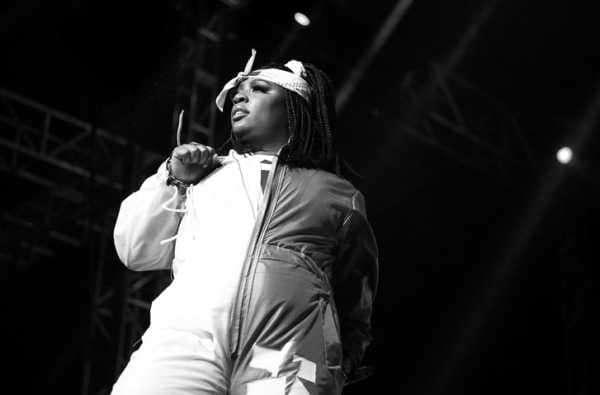
Kamaiyah.
Photograph by Rich Fury / Coachella / Getty
Ratchet, brilliant, and sometimes both at the same time and sometimes neither at all, these women are showing up and doing the work. What’s more, they’re often better than many of their male counterparts (chalk it up to the insidious requirement for women and minorities to be twice as good for half the reward), which introduces a particular dilemma: sex sells records and makes superstars, while “being real” or expressly lyrical gets you labelled as serious or, worse, boring. (Furthermore, women often face harsh criticism for owning their sexualities on wax even though their male counterparts are just as, if not more, lascivious.) The markers of “success” in rap are constantly moving, and the shifting goalposts are only making these women that much more of a force, as they operate within hip-hop’s valued traditions while re-imagining the genre in real time. But here’s the thing: even if these women had nothing to offer but their presence, their music void of palatable substance or the trappings of aggro club anthems, even if the kinds of complaints that suggest their music is inferior were actually true (they’re not), they would still be owed the space. They would still deserve to be allowed to make music for music’s sake—the kind that exists for no reason other than that it felt good coming out of their bodies—just as many men are.
Women in rap may be having a moment, but it isn’t yet time to declare victory. If rap is to really become the necessary artform that its purveyors believe it to be, it must not only reflect but champion the multifaceted lives of black women. It must offer platforms for the expression of their lived experiences—without the requirement of selling something, being the culture’s moral compasses, catering to fantasies, or answering for sexism and racism. Regardless, these women are not waiting for permission. The inability or, rather, the unwillingness to see multitudes of black women, and the uncoupling of black music from the experiences of black women, cheapens the art and limits our access to the full range of our history and our potential. As the feminist scholar Joan Morgan once wrote, “Truth can’t be found in the voice of any one rapper but in the juxtaposition of many.” And hip-hop’s women are guiding us toward a genre (and a world) that more closely resembles the one we claim to strive for. Ignore them at your own peril.
Sourse: newyorker.com
